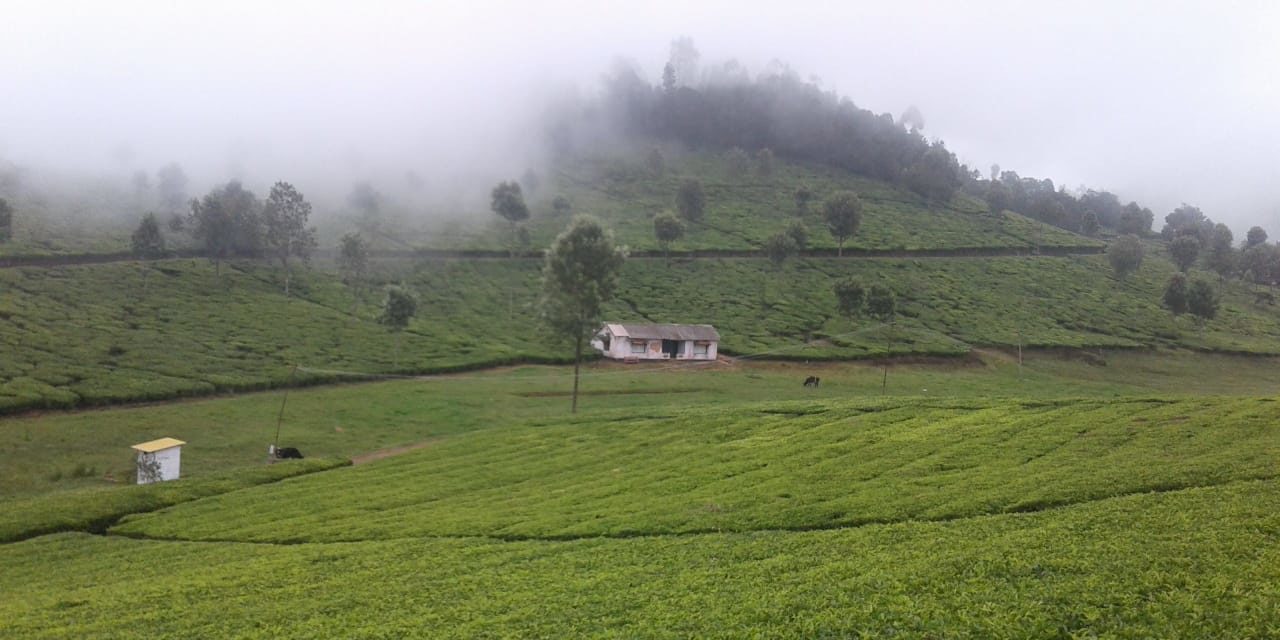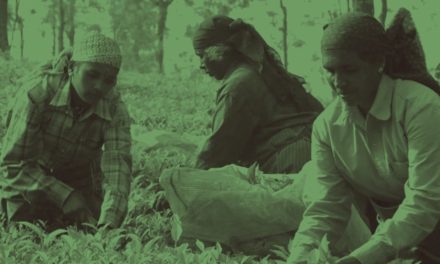Nilgiris is known as one of the major tea-growing regions in India, and the excellent quality tea produced is exported the world over. But the tea workers who form the backbone of this industry, have been at the receiving end of unethical working practices through the decades and these have seen little improvement. This reflects in low minimum wage standards, bad quality of housing and healthcare facilities, roadblocks to effective unionization, the double vulnerability of migrant workers, and overall lack of access to a decent quality of life.
Udhagamandalam, popularly known as the Queen of Hills in South India, is a group of hills spread over the Western Ghats, in the southern Indian state of Tamil Nadu. Tea is the major source of livelihood in the district and tea plantation estates are the primary source of employment.
Working conditions
Working conditions for these tea workers have been quite bad for the last 150 years, since cultivation first began. The employees’ wages, workload, safety, health, and living conditions are miserable, due to the lack of labour codes and local and national levels of government supervision.
Wages
The minimum wage for tea plantation workers in Tamil Nadu is INR 305, and the estates pay INR 314 per day. It would therefore seem as though estates pay higher than the minimum wage. However, following a petition by estate unions several years ago, INR 550 was ruled as the minimum wage for the region (also called ‘collector’s wage’). This was based on a calculation of tea workers’ workload and living expenses. The collector’s wage is yet to be implemented, and its implementation is being resisted because the minimum wage mandated by the state is much lower. This difference, between the minimum wages declared by the state and the collector’s wage, shows that the wages the workers receive do not meet their needs adequately. Their wages are insufficient in order to establish decent living conditions and to sustain workers’ families, even when both husband and wife work at the estate.
Workload
The workload in tea plucking is estimated to be heavier than the workload in any other kind of plantation work. Workers are normally able to pluck 30-35kg of tea leaves in a day but the estate management forces them to pluck up to 70kg in a day. During the yielding season, workers are forced to pluck up to 100kg in day. The plucking work is mainly assigned to women workers, who are physically and mentally drained as a result of the workload. Continuous work in the fields without proper rest and without holidays, and the requirement to carry heavy loads of tea baskets on their heads, cause several health issues. Women workers in the plantations suffer from pain in the neck, back, legs, and joints, and many undergo hysterectomies as a result of work-related health issues.
Quality of Life
Workers demand safety measures so as to protect their lives, but these are not typically provided by the estate management. The condition and quality of the safety equipment are inadequate, and when the equipment is not replaced in time, it is used by assigned workers in the field who work with chemicals and pesticides that cause allergies and infections. Housing is very limited and poorly maintained in the estates, and there are a number of houses that were built more than 80 years ago, that are now damaged but yet to be renovated. During the monsoon and winter seasons, workers and their children suffer due to bad weather and poorly maintained houses. This poor maintenance and lack of infrastructure in the houses creates the risk of wild animal and snake attacks. Neither the estate management nor the government has been able to resolve these issues.
The standard of education that their children receive is below their expectations. Additionally, 80% of the workers are indebted to local banks and their estate management as a result of expenses related to education. These workers spend their entire tenure working to repay their loans. There is also very little scope for the development and improvement of skills for children in these estates.
Workers spend a third of their lives at the estate with marginal benefits and their children are disconnected from the estate work because of the limited scope for upward mobility this work provides. Workers’ children usually prepare to move away from the estate for education or to find alternate jobs with better living conditions. Due to this absence of employees from the next generation, estate managements have begun to bring in workers from underprivileged communities from Orissa, Jharkhand, Assam, and West Bengal.
Freedom of association
The awareness of labour rights among workers is still minimal, and unions struggle to educate workers, often due to internal political differences. Although freedom of association is a fundamental right, workers are reluctant to engage in collective bargaining because of the power and authority that the estates have. As a result, their resistance is suppressed and muted, even as their rights are exploited by estate management.
The standard of education that their children receive is below their expectations. Additionally, 80% of the workers are indebted to local banks and their estate management as a result of expenses related to education. These workers spend their entire tenure working to repay their loans. There is also very little scope for the development and improvement of skills for children in these estates.
Workers spend a third of their lives at the estate with marginal benefits and their children are disconnected from the estate work because of the limited scope for upward mobility this work provides. Workers’ children usually prepare to move away from the estate for education or to find alternate jobs with better living conditions. Due to this absence of employees from the next generation, estate managements have begun to bring in workers from underprivileged communities from Orissa, Jharkhand, Assam, and West Bengal.
Vulnerability of Migrant Workers
Migrant workers in tea plantations particularly experience job insecurity. Often, they are unaware of their rights, and their managers use their language barrier to their advantage. This results in workers being unable to raise their voices against their management, as well as being unable to mingle with other workers in the estate. These obstacles for migrant workers are advantages for the estates. Migrant workers are more flexible in terms of work, which makes local workers obligated to complete their field assignments at the same rate. As a result, the workload of local workers is influenced by migrant workers, and both take on heavy assignments and strenuous targets. Another issue is that it is relatively difficult to monitor migrant workers and to see whether they are claiming their benefits and rights. Overall, the conditions that these people work are in inhumane and unfair and their rights are denied due to a general lack of awareness of labour conditions in the tea estates of the Nilgiris.
Life post-retirement
Most of the retired workers choose not to leave the estates after their retirement, as they have no shelter elsewhere. The housing provided on the estates is a major resource for workers. During their work tenure, they are unable to buy their own houses with their low wages, which are spent instead on the education of their children and on healthcare. Some retirees continue to work in the tea estates as contract employees, as this work provides housing and food. Overall, retired tea estate workers are left disillusioned, feeling that they have not lived a life worth living.
Author: Kaliyaperumal Narayanan is a Worker Training and Research Support Officer with Cividep India.


